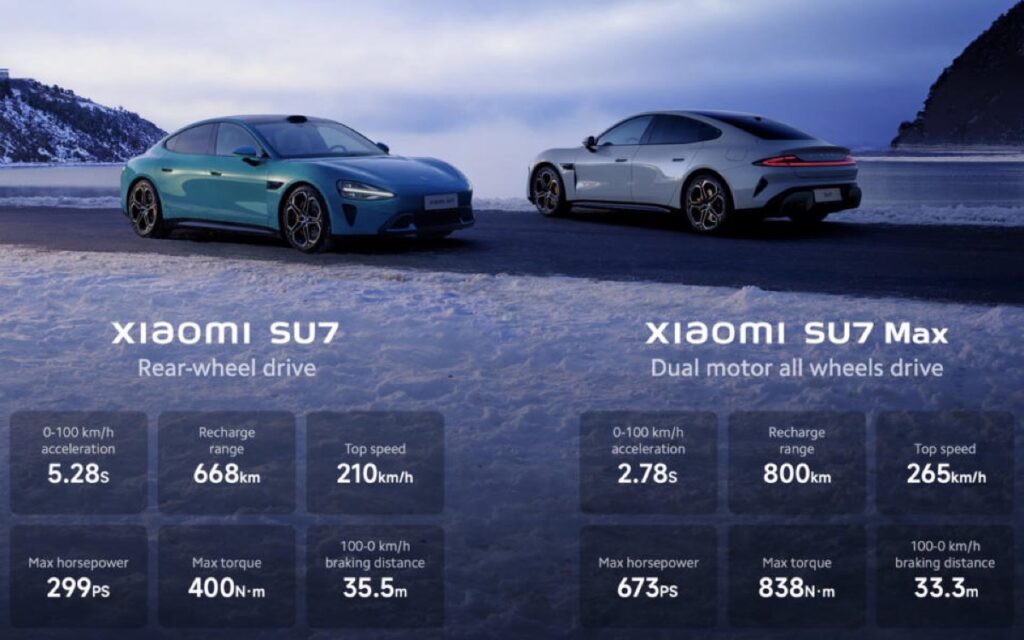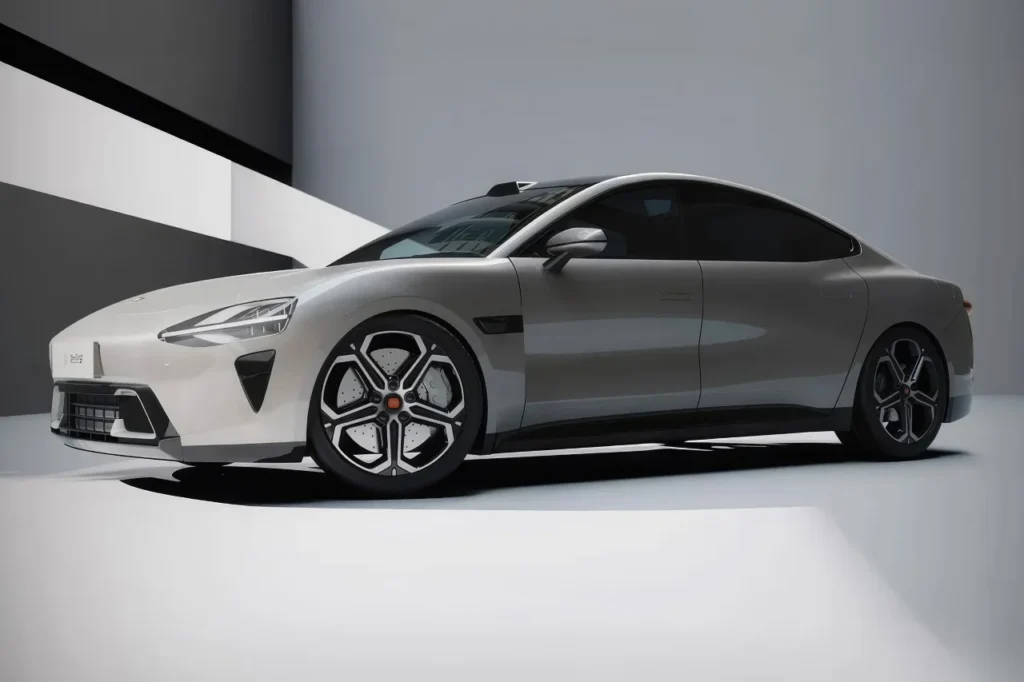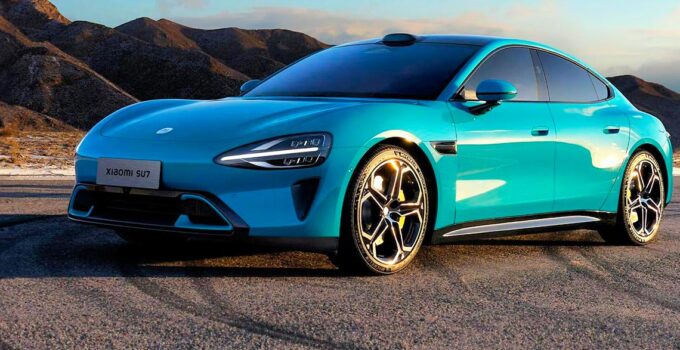Xiaomi Unveils SU7 Electric Car, Aiming to Compete with Tesla and Porsche in EV Market. Xiaomi, a brand traditionally associated with affordable smartphones, is making a bold leap into the automotive industry with its debut electric car, the Xiaomi SU7. This move positions Xiaomi as a potential challenger to established players like Porsche and Tesla in the electric vehicle (EV) market.
Microsoft Launches Copilot App for Android, Bringing Advanced ChatGPT AI to Mobile Devices
Revealed in Beijing, the Xiaomi SU7 sedan is based on the company’s innovative Modena Architecture. It features HyperEngine electric motors capable of reaching a maximum rotation speed of 21,000 rpm. The vehicle’s construction utilizes frames stamped by die-casting machines with an impressive clamping force of 9,100 tons, surpassing the machinery reportedly used by Tesla.
The SU7 range includes two models: the all-wheel drive SU7 Max with a dual motor setup and the rear-wheel drive SU7 with a single motor. Xiaomi’s SU7 Max is particularly noteworthy for its impressive performance specs. It boasts a range of up to 800 km and can accelerate from 0 to 100 km/h in just 2.78 seconds, eclipsing rivals like the Tesla Model S and Porsche Taycan Turbo.
This exceptional performance is largely attributed to the SU7’s 101 kWh 800 V CATL high-voltage platform. It enables the car to gain a range of 220 km with just a 5-minute charge, 390 km in 10 minutes, or 510 km in 15 minutes. The base model also supports a 400V charging system for its 73.6 kWh battery, offering a range of up to 668 km.

It’s important to note that these range figures are based on the China Light Vehicle Test Cycle (CLTC), which tends to yield more generous estimates compared to the WLTP light vehicle test procedure used in Europe and several other regions.
Xiaomi has been strategic in recruiting top talent from the automotive industry for this project. Key figures include former BMW executive Tianyuan Li, James Qiu from Mercedes-Benz, and renowned designer Chris Bangle, who serves as a design consultant. The SU7’s design, comparable in size to the BMW 5 Series, offers ample interior space and features a notably large boot.

The car’s technology suite is equally impressive. It includes the HyperOS entertainment system powered by a Qualcomm Snapdragon 8295 processor and boasts a 16.1-inch central screen. Unique design elements such as the “water drop” shaped headlights and a rear LED brake comprised of 360 LEDs add to its aesthetic appeal. The car is equipped with CarPlay and AirPlay wireless connectivity, along with iPad functions for rear passengers.
The SU7 also steps into the realm of autonomous driving with the Xiaomi Pilot platform. This system utilizes NVIDIA Drive Orin processors and an array of sensors, including Lidar and cameras. Xiaomi aims to complete autonomous driving tests across 100 Chinese cities by 2024.
While Xiaomi has not yet disclosed the pricing for the SU7, CEO Lei Jun hints that it will be positioned as a premium offering. The car’s availability outside China remains uncertain, but Xiaomi has expressed plans for further technological advancements. These include the development of HyperEngine V8s engines and future carbon fiber-based technologies, with the goal of incorporating these into their cars by 2025.

In conclusion, Xiaomi’s entry into the electric vehicle sector with the SU7 is a testament to the company’s ambition and innovation. With its impressive performance, cutting-edge technology, and strategic industry hires, Xiaomi is poised to make a significant impact in the EV market, challenging established luxury brands and signaling a new era for the company.
